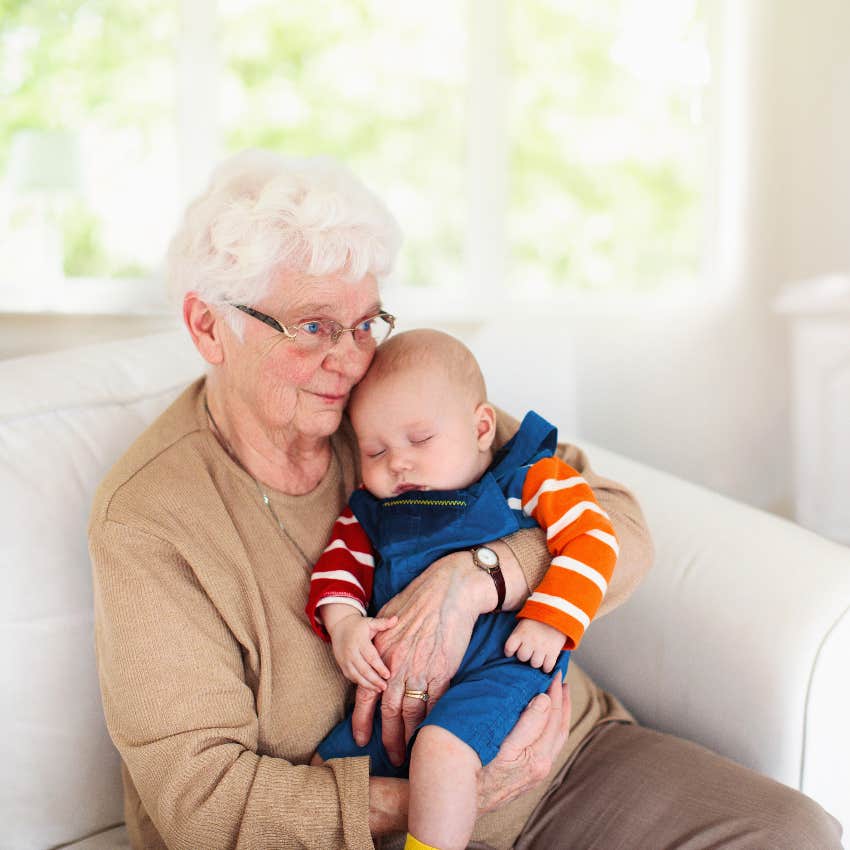5 Things Parents Of Narcissistic Adult Children Struggle With, According To A Relationship Expert
There are steps you can take to heal from their abuse.
 RuslanGuzov | CanvaPro
RuslanGuzov | CanvaPro There are countless articles out there discussing the impact of narcissistic parents on their children, but being the parent of a narcissistic adult child can be just as painful.
That child is half your DNA, you raised them, maybe even birthed them, but they treat you horribly. You likely don't want to cut them off and lose them entirely, but your relationship isn't sustainable or healthy.
Relationship coach Christopher Reid discussed this complex relationship and provided some steps that parents of narcissistic adult children can take to heal.
Here are 5 things parents of narcissistic adult children struggle with:
1. They feel overwhelming guilt about where they ‘went wrong’
"You're constantly reflecting on what [you did] wrong as a parent to cause [your] child to turn out like this," Reid described.
According to the Mayo Clinic, the causes of narcissism are complex and not entirely understood. The disorder may be linked to genetics, neurobiology, and environment.
Even if their narcissism is, in part, a result of mistakes you’ve made as a parent, you can't bear the full responsibility for your adult children's decisions and demeanor — it’s both unfair and unreasonably taxing. At this point, they are adults and responsible for their own actions.
You can’t ruminate on them forever, or at least, you shouldn't. Take responsibility, apologize, and move forward, even if that means stepping away from this relationship to protect your health and sanity.
2. They overcompensate to keep the peace
When parents of narcissistic adult children try to keep the peace in their relationships and family, they often put themselves in a more vulnerable position to be hurt.
They unintentionally allow themselves to fall victim to blame-shifting and manipulation and sacrifice their own well-being, often fueled by parental guilt and shame.
Trying to keep the peace is not inherently toxic, but you should consider your own well-being first and stop people-pleasing. As you've probably realized by now, your efforts are futile with a narcissist — something always breaks the peace.
3. Self-doubt clouds their achievements and growth
Similar to how a narcissistic parent can spark insecure attachments and self-doubt in their children, the same can be said for a narcissistic adult child and their parents. Their relationship is founded on the adult child’s control, making every interaction anxiety-inducing and disillusioning.
Narcissistic adult children don’t view their parents as whole beings but instead, as objects that they can manipulate to get what they want. They’ll always view you as inferior and believe that you “owe them a debt,” as mental health coach Lee Hammock explained.
No matter what you do to save the relationship or protect your bond, it will never be enough in the eyes of these adult children.
4. Their child blocks access to their grandchildren to keep them in line.
If your adult child has their own children, it can be even more challenging to set and enforce the necessary boundaries, especially when they weaponize said grandchildren as tools for manipulation.
“The grandbabies [are] innocent in this whole thing, and you feel like you can't live with the idea of not being in your grandchildren's life,” Reid said. “However, your fear is, if you don't allow your child to punish you and continually disrespect you, they gonna block access to your grandkids."
 FamVeld | Shutterstock
FamVeld | Shutterstock
5. Their adult children always play the victim.
Sometimes, we underestimate the lengths to which narcissists will go to get what they want — from manipulating loved ones and lying to victimizing themselves. There’s often no moral compass in the face of their self-centeredness.
Even if you’re grappling with parental guilt from their childhood, don’t let them victimize themselves to manipulate you. You deserve to heal and move forward, just as much as they do, but to continually hold your mistakes over your head is both toxic and unfair.
Thankfully, Reid said, there are steps you can take to heal as the parent of a narcissistic adult child. Things will likely get worse before they improve, but in the end, you will feel far better.
Here are 5 things parents of narcissistic adult children can do to heal:
1. Practice self-love
Although it's easier said than done, practicing self-love is the first and most important step. Make an effort to speak — and think — kindly to yourself, forgive yourself, learn to say no (even to your children), and accept yourself as you are.
It will require conscious effort at first, but after a while, self-love will be second nature.
2. Accept that your child may never change
Reid acknowledged that this is a "very hard truth," but sometimes you have to accept things as they are. Your narcissistic child may never change, and you can't make them. Sadly, holding on to this unwarranted hope will bring only pain and heartache.
And if they do change? Then it will be a happy surprise.
3. Set firm boundaries
“You're going to have to put up some firm boundaries letting them know, ‘I’m no longer accepting the disrespect in any way, and if you try to ... there's gonna be some consequences,’” Reid advised.
Boundaries are necessary to protect yourself. According to Charlie Health, when setting boundaries with a narcissist, you should first recognize their narcissistic traits and then "create a plan that addresses your concerns, goals, potential challenges and obstacles, and the change you’d like to see in your relationship."
With this, you must also set clear consequences for overstepping your boundaries. Sadly, this may mean going no contact if they are unable to respect your wishes.
4. Accept that you won't be given access to your grandchildren
"Here's the hardest part of all," Reid said. "You may have to accept that you won't be given access to your grandkids. Now, I know this ain't fair, but the toxicity is killing you."
5. Remember that other people in your life need you
You may love your narcissistic child, but they aren't the only person in your life. Others love and need you, so shift your attention elsewhere, where your care and kindness will be reciprocated.
“You have to realize there are other people in your life who need you. You have other kids who have been collateral damage,” Reid said. “You gotta stop casting your pearls in front of folks who are never, ever going to appreciate it, even if it's your child.”
Zayda Slabbekoorn is a News & Entertainment Writer at YourTango who focuses on health & wellness, social policy, and human interest stories

